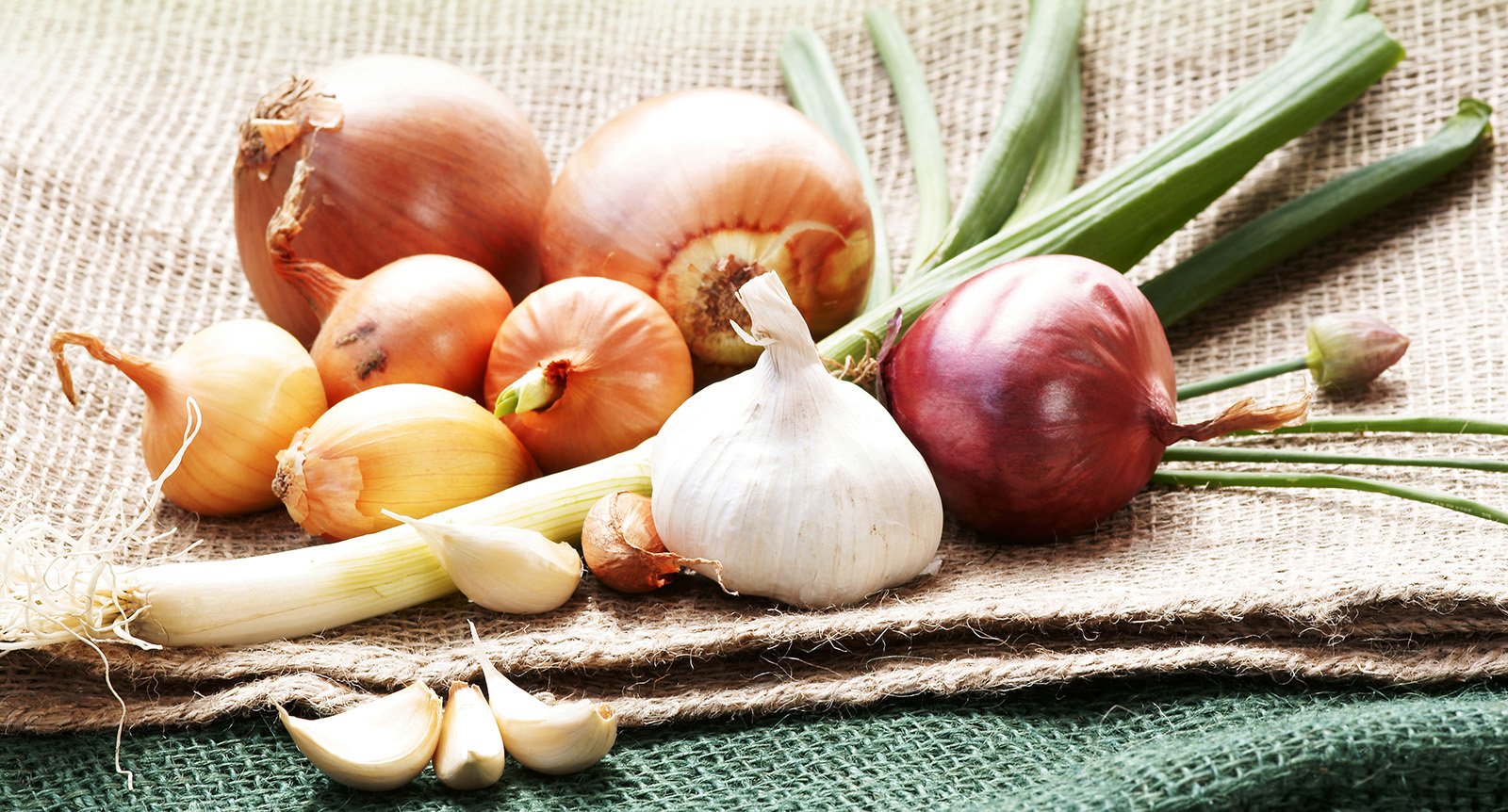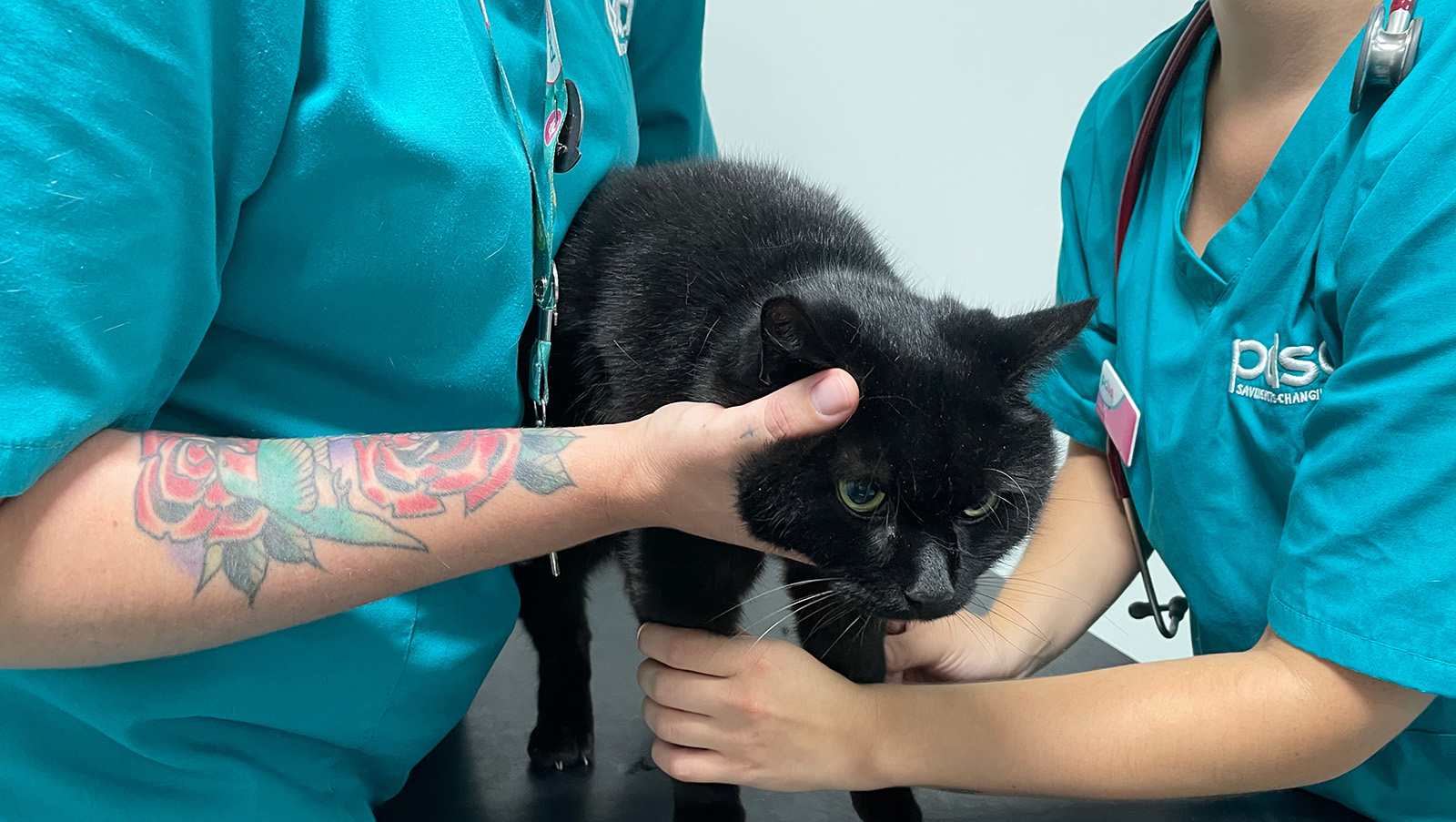Onion and Garlic Poisoning in Cats
Overview
- Onions, shallots, leeks, garlic, and chives are part of group of plants called alliums which are toxic for cats and dogs.
- They cause gut upsets, and damage red blood cells, which results in anaemia.
- Symptoms include vomiting, diarrhoea, a reduced appetite, and dehydration.
- If your cat has eaten onions, garlic, leeks, or chives contact your vet as soon as possible.
- Fortunately, most cats recover completely with treatment.

- Cats shouldn’t eat onions because they are part of a group of plants called alliums, which are toxic to cats.
- Onions (including spring onions and shallots) are the most toxic allium for cats, but garlic, chives and leeks are also toxic, even when cooked or dried.
- Alliums are thought to contain toxins called disulphides and thiosulfinates that damage red blood cells – which causes anaemia.
- Onion and garlic can be found in many pre-made foods like sauces and baby food, so it’s important to make sure your cat doesn’t have access to dirty plates or jars.
Symptoms
Gastrointestinal (tummy) symptoms often appear 6-24 hours after eating alliums (but can sometimes take a few days), and include:
- Vomiting
- Diarrhoea
- Reduced appetite
- Abdominal (tummy) pain
Symptoms of anaemia (low red blood cell count) often take a bit longer to appear, usually within one to five days. Symptoms include:
- Pale or jaundiced (yellow) gums
- Trouble breathing
- Weakness and lethargy (low energy)
Very rarely, onion and garlic poisoning can cause seizures.
Diagnosis
There isn’t a specific test for allium poisoning, so your vet will make a diagnosis based on your cat’s symptoms and whether they have had access to any food containing alliums. Your vet might also recommend running some urine and blood tests to check for anaemia.
Treatment

- If it’s been less than four hours since your cat ate onion, garlic, or leeks, your vet will probably advise an injection to make them vomit. Don’t attempt to make your cat vomit yourself at home. They may also suggest activated charcoal which will help absorb any remaining toxins in their stomach.
- Your vet might also recommend that your cat stays in the practice for observation and is put on a fluid drip to keep them hydrated/support their vital organs.
- They may also require treatment for any symptoms they develop, for example anti-sickness medication if they are vomiting.
Outlook
- With treatment, most cats recover completely.
- Fortunately, it’s very rare for onion, garlic, or leek poisoning to cause ongoing problems or death.
When to contact your vet
It’s best to treat allium poisoning as soon as possible, so contact your vet straight away if you see your cat eating onions, garlic or leeks or if you are concerned they are showing symptoms. You can also call the Animal Poisoning Line for advice.
Can cats eat cooked onions?
No, cooked onions, shallots, garlic, chives, and leeks are all toxic to cats and should be kept out of their reach. Remember that sauces, baby food and other pre-made foods may contain onions or garlic so keep dirty plates and jars away from your cat.
Does garlic treat fleas?
No, there is no evidence that garlic can be used to treat fleas and it should never be given to cats, even in small doses. Always use veterinary-approved flea treatments.
Published: May 2023
Did you find this page useful?
Tell us more
Please note, our vets and nurses are unable to respond to questions via this form. If you are concerned about your pet’s health, please contact your vet directly.
Thank you for your feedback
Want to hear more about PDSA and get pet care tips from our vet experts?
Sign up to our e-newsletter
Written by vets and vet nurses. This advice is for UK pets only. Illustrations by Samantha Elmhurst.
